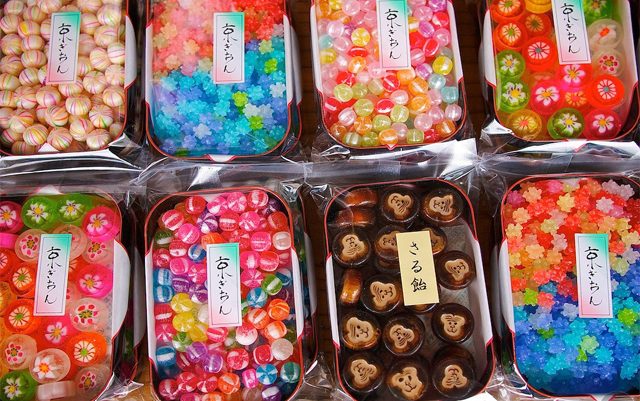In the small town of Manlius, Illinois there was a trick-or-treating event the night before Halloween – and as parents looked through their children’s candy some became concerned at the sight of a candy they had never seen before. The packages read “Crunch Choco Bar” with what appeared to these parents to be marijuana leaves on the wrappers. This prompted multiple parents to bring the candy to the local authorities, who conducted a field test which they claim came up positive for THC. Shortly after, they issued a notice with a picture of the candy, urging parents to bring any other candies like this in and to help them find the source of the odd sweets.
After a few local media channels reported on the issue, a couple of bloggers caught wind of it and decided to inspect the candy themselves. A little Google searching and it was discovered that these candies are Japanese, and according to Reason.com they are sold by a brand called Iroha Kaede, which features maple leaves as a part of their logo. So those little leaves all over the candy wrappers were not marijuana leaves at all, they were simply maple leaves – and it’s not the first time the two have been confused, but that small bit of information could have avoided a lot of confusion.
Of course, before it was tested by a lab, proving that there was no THC present in these candy bars, word had already gotten out; and this came less than a week after Drug Free Florida came out with claims that legalizing medical marijuana would make something like this more likely to happen. As soon as the Drug Free America Foundation saw these claims, they immediately jumped in – trying to push the fear even further before there was any evidence to back it up.
“This incident is a clear cut example of how marijuana is a tangible danger to our children,” said Calvina Fay, the group’s executive director. “If marijuana becomes legal under the guise of medicine in the state of Florida we can expect a rise in incidents like this here. The legalization advocates can wish this away all they want but it is a reality and shame on them for pretending that the danger does not exist!”
Luckily, it has all been cleared up now – the candies have been identified and the lab tests came back negative for THC. However, there is definitely a lesson to be learned here – a couple of them actually. For one, if the field test did actually come up positive for THC, then that shows how unreliable they can be, meaning it may be time to go back to the drawing board rather than using it as a reliable way to test for drugs. The second thing is that while it is good to be cautious of what ends up in your child’s Halloween candy, the idea that someone is going to replace fun-sized candy bars for a THC-infused version definitely shouldn’t be a fear for parents.






